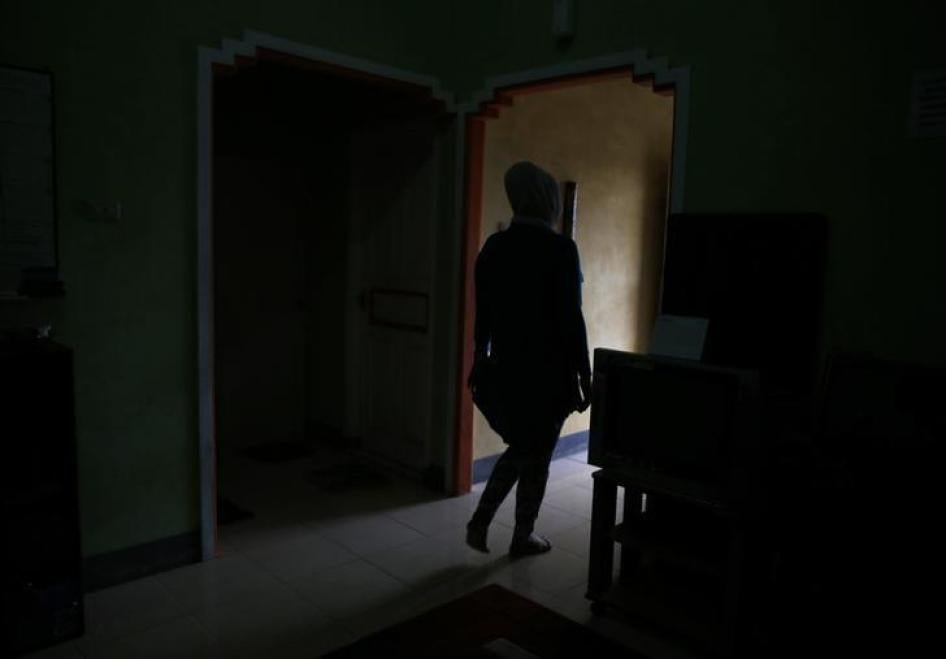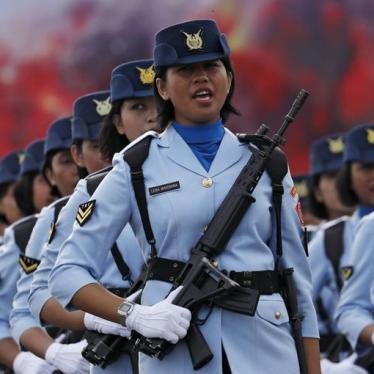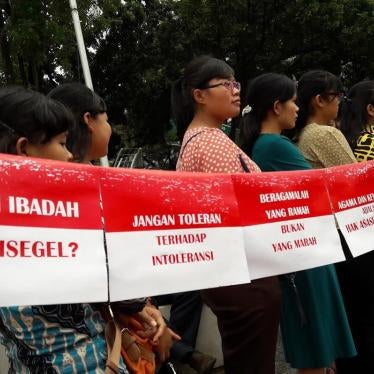Militant Islamist vigilantes targeted a group of transgender women attending a birthday celebration in Indonesia’s Aceh province on Saturday.
The mob alerted the local Sharia (Islamic law) police, who detained seven women in Banda Aceh, the provincial capital, for 24 hours, and chastised them for “bad morals” before releasing them.
Everything—from the vigilante-style snooping, to the Sharia police tip-off, to the official shaming—is in accordance with local Acehnese law. Aceh, the only Indonesian province that can legally adopt bylaws derived from Sharia, makes male and female same-sex conduct a criminal offense.
Local officials have made matters worse by aggressively stoking homophobia. In 2013, Banda Aceh mayor Illiza Saaduddin declared that “homosexuals are encroaching on our city.” In February 2016, Saaduddin posted to Instagram a photo of herself holding a handgun and vowing to purge Aceh of LGBT people. That same month, she announced she would create a “special team” to boost public awareness of the “threat of LGBT” people and to “train” LGBT people to “return to a normal life.”
But Saaduddin is only part of the problem. In October 2015, Sharia police arrested two women on suspicion of being lesbians, detaining them for three nights before imposing on them a week of “religious rehab.” In 2016, after senior government officials fomented an anti-LGBT crisis with a stream of rhetoric that demeaned and threatened Indonesia’s LGBT population, authorities in one Acehnese city urged employers not to hire LGBT people.
Aceh’s abusive anti-LGBT policies have generated international opprobrium. Last May’s public flogging of two gay men in Aceh—Indonesia’s first public caning for homosexuality—sparked outrage far beyond Indonesia’s borders. In 2016, United Nations experts wrote to the Indonesian government expressing concerns about the abusive enforcement of Sharia against LGBT people in Aceh. While Indonesia has yet to respond to this, in September it informed the UN Human Rights Council that it would “take further steps to ensure a safe and enabling environment for all human rights defenders,” including LGBT activists. It has yet to back its pledge with action.
Despite Indonesian leaders’ frequent touting of the country’s diversity and pluralism, many of Indonesia’s minorities remain vulnerable to harassment, intimidation, and violence. Last weekend’s detention of friends attending a birthday party is just the latest example of this. The government should condemn this vigilantism, but will Jakarta speak out?










